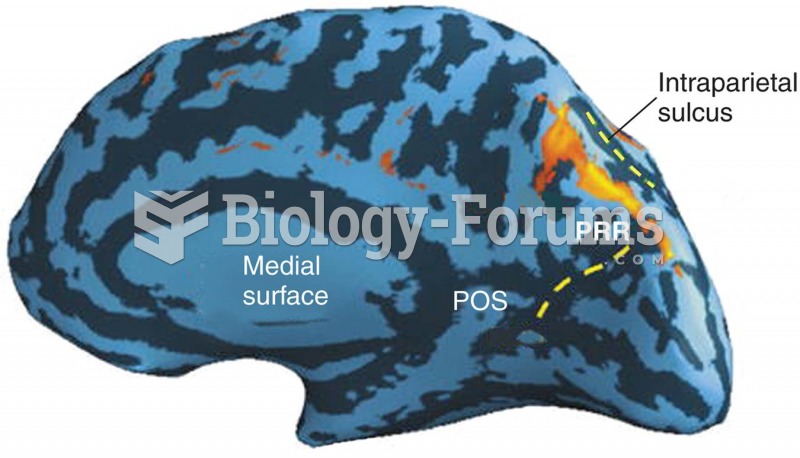|
|
|
Most childhood vaccines are 90–99% effective in preventing disease. Side effects are rarely serious.
The immune system needs 9.5 hours of sleep in total darkness to recharge completely.
Stevens-Johnson syndrome and Toxic Epidermal Necrolysis syndrome are life-threatening reactions that can result in death. Complications include permanent blindness, dry-eye syndrome, lung damage, photophobia, asthma, chronic obstructive pulmonary disease, permanent loss of nail beds, scarring of mucous membranes, arthritis, and chronic fatigue syndrome. Many patients' pores scar shut, causing them to retain heat.
Blood in the urine can be a sign of a kidney stone, glomerulonephritis, or other kidney problems.
Despite claims by manufacturers, the supplement known as Ginkgo biloba was shown in a study of more than 3,000 participants to be ineffective in reducing development of dementia and Alzheimer’s disease in older people.







